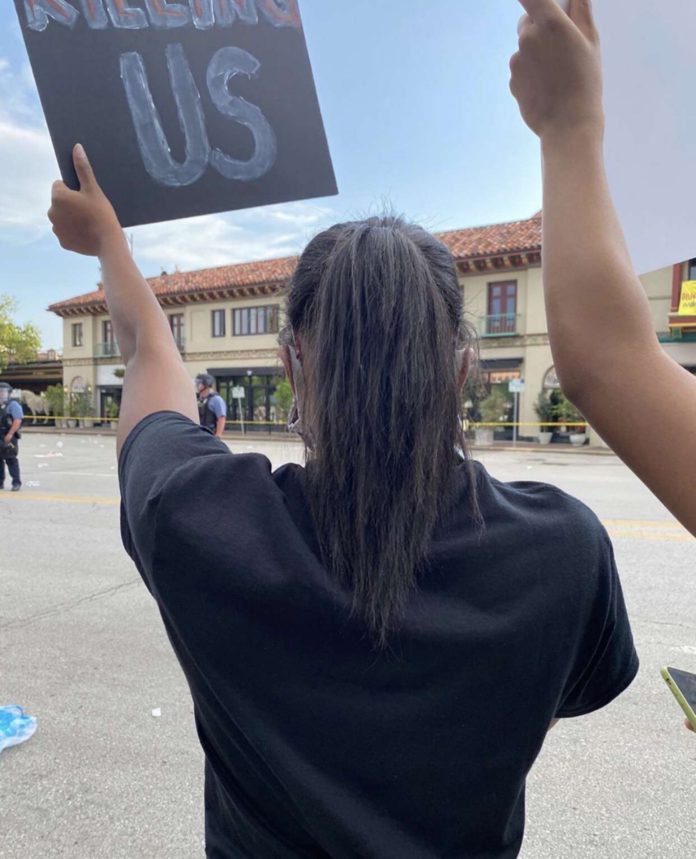On the weekend of May 30th, protesters gathered on the Plaza to protest systemic racism and police brutality within the city’s police department and police departments nationwide.
During the weekend, Kansas City police arrested over 150 people in response to the protests.
Kansas City, and at a smaller extent Lee’s Summit, joined cities nationwide in vocalizing their outrage over the murder of George Floyd by police officers in Minneapolis.
“It’s [police brutality] common in today’s society, which is really, really messed up. But this incident, I feel, was the biggest that I’ve seen something in the news in a while,” 2020 graduate Alyssa Pfeifer said.
Pfeifer, who is said she is passionate about activism against systemic issues, participated in a protest in Lee’s Summit but said that many people she knew were afraid or weren’t allowed to protest after the escalation of conflict between protesters and officers on the Plaza just days before. “I also knew that it got violent because so many people are out there protesting change, and that because of how I felt so passionately about it, that I needed to be out there too and to fight and to speak for what I believed in,” Pfeifer said.
Although she is passionate about the topic of systemic racism, Pfeifer decided that it would ultimately be better for her to go to the smaller protest held in Lee’s Summit.
The information for the protest was spread around social media and included community members of all races. Pfiefer said that there were police officers present, as well as Lee’s Summit mayor William A. Baird. Pfeifer said, “It was really, really peaceful. We got there, and there were probably about maybe 30 or 50 people … It was a relatively small crowd.”
Junior Alivia Tolbert attended both protests; Downtown Lee’s Summit and the Plaza. Tolbert said that the experience of the protests seemed very unrealistic, but it was the best feeling. “Seeing people of all colors there with the same amount of passion was the best feeling. I finally felt like people heard us and that left me with tears in my eyes the entire time,” Tolbert said.
Pfeifer said that she felt a sense of gravity while protesting. “It’s a cool thing to be a part of just because, in that moment, you’re a part of history because you’re fighting for what you believe in. And I just think that that’s something that we always read in the textbooks.”
Tolbert said she led a little bit of the protest she attended in downtown Lee’s Summit. “I took a knee and everyone else followed, which was amazing. I then asked for a moment of silence for the lives that have been lost without justice,” Tolbert said.
Protests can be dangerous to attend, said senior Jordan Brown, which is why she hasn’t attended one. Brown said that her parents didn’t want her to get hurt if the protests were to become violent or risk her getting exposed to COVID-19 since there would be a large number of people coming together.
Brown said that the protests have been bringing about positive results by uniting people, as well as exposing issues within the system as a whole. “Not only are charges starting to be brought up, but it’s helping unite people of different ethnicities, religions, backgrounds, sexualities, etc, to fight for a common cause … This isn’t just a Black issue, It’s an everyone issue.”
Pfiefer said she believes the protests are a way to channel the negative emotions from COVID-19 and past police brutality into a positive force for good.
She said that she thinks the biggest impact the protests will have is, “people in positions of power are going to look back on this time and know that what people do believe in work, they all kind of stand together, that we have power, we have influence, we have [a] voice.”














